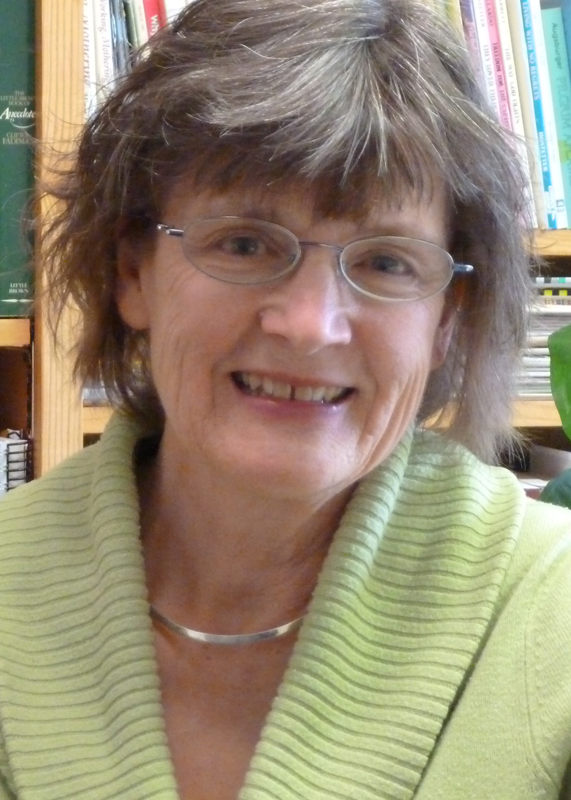Same Kind of Different As Me – Guest column by Lauree Purcell
Editor’s Note: Lauree Purcell is the mother of two daughters and formerly worked as a city planner in Virginia and Maryland. She and her husband, Steve, are members of Asbury United Methodist Church in Harrisonburg, Va.
Some people are clearly in pain, need medical attention or a dentist. Others could use a new set of clean clothes and a bath.
It’s our church’s turn to feed the hungry tonight, and we have a full house. I’m in the fellowship hall dishing out chicken tetrazzini casserole while friends pass out rolls, salad, fruit, and blackberry cobbler. The line is long and my casserole looks so small. Church women made four casseroles, but this is the last one. There are many more people anxiously looking at the table—afraid we’ll run out.
When we do, my friend John brings loaves of bread, mayonnaise and mustard, stacks of ham and turkey lunchmeat, and Swiss cheese. The line never gets shorter because all the people who ate their casserole get back in line to have at least one sandwich. But we have plenty of food.
I look into the eyes of those in line and try to cheer them up as they pass, to show Christ’s love. Some people are clearly in pain, need medical attention or a dentist. Others could use a new set of clean clothes and a bath. A few I recognize as having been on the streets for many years. Others are now attending our church regularly and seem to be doing a lot better. They all make me think of Denver Moore.
Until the late 1990s, Denver was living on the streets of Fort Worth, Texas. A large, illiterate man in his sixties with yellowed eyes and few teeth left, he was known to be a hardened, angry, silent man who preferred to be left alone. He had spent 10 years in Angola prison for attempted armed robbery and had learned to protect himself with a knife while there. Denver had grown up as a sharecropper in Louisiana. He had picked cotton alongside his family while white children his age went to school. He lived in shacks with no electricity or running water.
When at 15 he stopped to help a woman with a flat tire, teens put a rope around his neck, tied it to a horse, and dragged him until he almost died. The owners of the land gave him nothing for his work but a few clothes, one pig to raise each year, and the right to grow vegetables and hunt game in the woods. At 30, he hopped a train to try to make some money in a big city. He ended up in Fort Worth without the skills or training necessary to find a steady job.
Ron and Debbie Hall, wealthy art dealers, met Denver in the Union Gospel Mission when they volunteered to serve food to homeless people there on Tuesday nights. Ron was afraid of Denver at first, but Debbie had a dream in which she sensed that God wanted them to be friends. She wrote Denver’s name in her Bible, next to Ecclesiastes 9:15: “There was found in a certain city a poor man who was wise, and by his wisdom he saved the city.” So she encouraged Ron to keep approaching Denver to try to get to know him. It took months for Ron to convince Denver to trust him. During those months, Denver watched as Ron and Debbie helped feed hundreds of people, established movie nights and discussion groups. Debbie helped set up a beauty spa night at the mission where she and her friends washed and styled women’s hair, applied cosmetics, gave pedicures, and passed out free samples of beauty products. The people were able to see Christ’s love through the acts of kindness Ron and Debbie consistently showed them, and they opened up their hearts to each other.
When Debbie got cancer, Denver and Ron became close friends as they prayed and grieved for her. Now Denver is Ron’s personal assistant and friend. I hope you’ll read their amazing book from which I excerpted this story, Same Kind of Different As Me: A Modern-Day Slave, An International Art Dealer, and the Unlikely Woman Who Bound Them Together (Thomas Nelson, publisher, 2008). Denver and Ron dedicated the proceeds of this wonderful book “to carry on Deborah’s vision of helping the Lord’s most unfortunate children.”
I’m proud of my church for participating in many efforts to help people living on the edge who need a safe and secure life. We are a downtown church, so it makes sense that the people who live downtown should feel welcome to worship with us and come to all of our social events. Now some of them do. My husband helped with construction projects at Mercy House when our church chose to do a week of intense local mission work. Mercy House feeds, clothes and houses homeless families with dependent children, while helping them find training and employment. During the cold months, our church is one of many that provide a week of nightly shelter at the church. My husband takes his turn spending the night, and sometimes I help prepare or serve a meal. As we do these things, we understand the truth of something Denver said: “Whether we is rich or poor or somethin’ in between, this earth ain’t no final restin’ place. So in a way, we is all homeless—just workin’ our way toward home.”
What are ways you work at helping others? I’d love to hear from you. Comment at www.thirdway.com/aw orwrite to me at, or by regular mail, send to Another Way, 1251 Virginia Avenue, Harrisonburg, VA 22802.
Posted 3/13/2014 7:00:00 AM
What do you think?
Post a comment or read others’ thoughts on this article in the Online Conversation, or.




